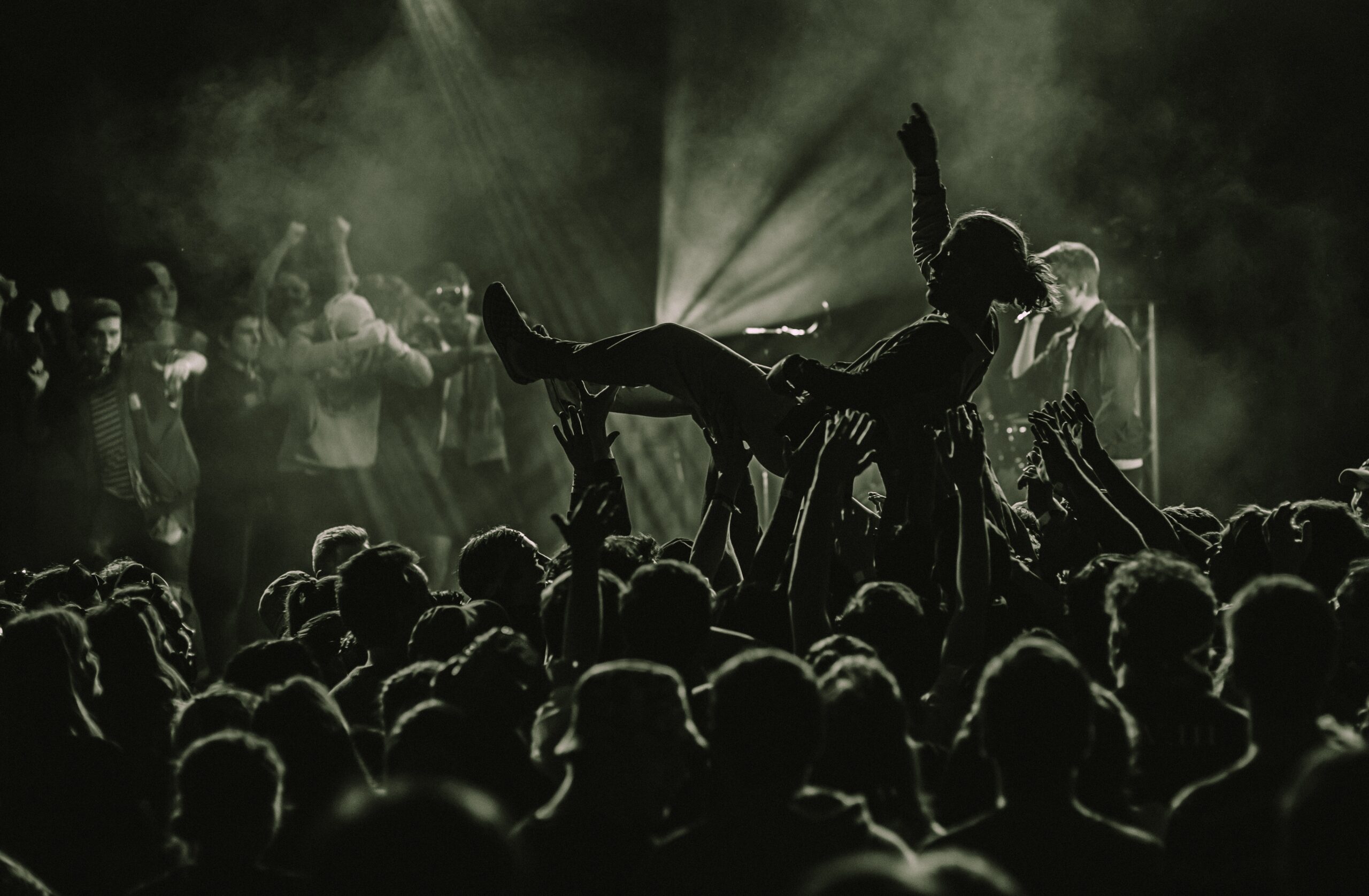Introduction
Stage fright is a universal experience for many performers, from seasoned musicians to aspiring actors. It’s that feeling of anxiousness, sweaty palms, and a racing heart that can make or break a performance. In this blog post, we will explore effective strategies to conquer stage fright and thrive as a performer.
Understanding Stage Fright
What is Stage Fright? Stage fright, often referred to as performance anxiety, is the fear or apprehension experienced before or during a performance. It can affect anyone, regardless of their level of experience or talent. It’s not uncommon for even the most famous musicians and actors to grapple with stage fright.
Common Symptoms and Triggers Symptoms of stage fright can vary from person to person but often include trembling, sweating, a dry mouth, and a racing heart. Common triggers include the fear of judgment, making mistakes, or forgetting lines or lyrics.
For example, the legendary singer Adele, known for her powerful voice and emotive performances, has openly discussed her battles with stage fright. She once admitted to vomiting before many of her shows due to nerves. Despite her immense talent, the fear of performing in front of large crowds plagued her for years.
How Stage Fright Affects Your Performance Stage fright can have a significant impact on your performance. It can lead to missed notes, forgotten lines, and a lack of connection with the audience. This can undermine your confidence and the overall enjoyment of your performance.
Preparation is Key
The Significance of Rehearsal One of the most effective ways to combat stage fright is through meticulous preparation. Adequate rehearsal builds confidence and reduces the fear of the unknown. It allows you to become intimately familiar with your material, making it less likely that you’ll forget your lines or chords.
For instance, Beyoncé, one of the most iconic performers of our time, is known for her rigorous rehearsal routines. She often spends months preparing for her tours, leaving no room for surprises. This level of preparation helps her perform with confidence and precision.
Developing a Routine Establishing a pre-performance routine can help ease anxiety. This routine might include specific warm-up exercises, vocal or instrument practices, and relaxation techniques. It helps create a sense of familiarity and control.
Familiarity with the Performance Space If possible, visit the performance venue in advance to familiarize yourself with the space. Visualizing your performance on the actual stage can reduce the fear associated with the unknown.
Mental Techniques
Visualization and Positive Thinking Visualization is a powerful tool used by many successful performers. By mentally rehearsing your performance and imagining a positive outcome, you can reduce anxiety and build confidence. Visualize yourself confidently owning the stage, captivating the audience, and receiving applause.
Pop sensation Taylor Swift is known for her use of visualization techniques. She envisions a “magic wall” between herself and the audience, where she can freely express her emotions without fear of judgment.
Practicing mindfulness and meditation can help calm nerves and increase focus. These techniques encourage you to stay present and grounded, reducing anxious thoughts about the past or future.
Breathing Exercises and Relaxation Techniques Controlling your breath is essential in managing stage fright. Deep, diaphragmatic breathing can calm your nervous system and reduce physical tension. Incorporate breathing exercises and progressive muscle relaxation into your pre-performance routine.

Physical Techniques
The Role of Body Language Your body language can influence your confidence and stage presence. Adopting an open and confident posture can not only make you appear more self-assured but also make you feel that way.
Physical warm-up exercises are crucial to prepare your body for the demands of a performance. Just as athletes warm up before a game, musicians and actors must warm up their bodies to perform at their best.
For example, the late Michael Jackson was known for his extensive dance and vocal warm-up routines. His dedication to preparation contributed to his legendary live performances.
Managing Adrenaline and Physical Tension The adrenaline rush before a performance can be overwhelming.
However, you can learn to harness this energy to enhance your performance. Channel your nervous energy into your act, using it to add excitement and intensity to your show.
Building Confidence
Setting Realistic Goals Setting achievable goals can boost your confidence. Start with smaller performances or auditions to build your confidence gradually.
As you gain experience and success, you’ll become more comfortable with larger audiences and more challenging material.
Positive Self-Talk and Affirmations Negative self-talk can be a major contributor to stage fright. Replace self-doubt with positive affirmations and statements of self-belief. Remind yourself of your talent and past successes.
Gaining Experience Through Smaller Performances Consider playing at open mics or smaller venues to gain experience and gradually expose yourself to larger audiences. This can help you build confidence and overcome stage fright over time.
Seeking Support
The Importance of a Support System Having a support system can provide emotional encouragement and stability during challenging times. Share your fears and concerns with friends, family, or fellow performers who can offer support and understanding.
Working with a Coach or Mentor Many successful performers credit their mentors or coaches for their growth and development. An experienced coach can provide valuable insights, guidance, and constructive feedback to help you overcome stage fright.
Joining Performance Groups or Classes Participating in performance groups or classes can expose you to a supportive community of fellow artists. This shared experience can alleviate the feeling of isolation and provide opportunities for growth.
Coping with Mistakes
Embracing Imperfection Accept that mistakes are a natural part of performing. Even the most accomplished artists make mistakes. The key is to learn how to recover gracefully.
Strategies for Handling Mistakes Gracefully Develop strategies for dealing with mistakes, such as practicing recovery techniques or having a backup plan in case something goes wrong. Remember that the audience often forgives minor errors, and how you handle them can even endear you to them.
Learning from Your Errors Every mistake is an opportunity to learn and grow. Analyze your performances, identify areas for improvement, and use these experiences to become a better performer.
Check out: Overcoming Writers Block as a Musician
On-Stage Presence
Connecting with Your Audience Engaging with your audience is essential for a memorable performance. Make eye contact, interact, and convey emotion to establish a connection. Remember that your audience wants you to succeed.
Tips for Maintaining Focus During a Performance Stay present and focused during your performance by concentrating on the music or the story you’re telling. Avoid distractions and self-criticism, and immerse yourself in the moment.
Handling Unexpected Situations Live performances are unpredictable, and things may not always go as planned. Being adaptable and resourceful in the face of unexpected challenges is a valuable skill for any performer.
Post-Performance Self-Care
Reflecting on Your Performance After your performance, take time to reflect on your achievements and areas for improvement. Self-reflection can help you grow as a performer.
Celebrating Your Successes Don’t forget to celebrate your successes, no matter how small. Recognizing your achievements can boost your confidence and motivation for future performances.
Preparing for Future Performances Use
the feedback and experiences from your current performance to inform your preparation for future ones. Continual improvement is a key aspect of overcoming stage fright and becoming a more confident performer.
Check out: Utilizing Sampling in Music Production
Conclusion
In the world of entertainment, stage fright is a common adversary that even the brightest stars must face. However, armed with the right strategies and techniques, you can conquer your fears and deliver captivating performances, just like the musicians and artists you admire.
Remember that stage fright is not a sign of weakness; it’s a testament to your passion and commitment as a performer. Embrace the challenge, and use it as a catalyst for growth and self-discovery.
By understanding stage fright, preparing meticulously, mastering mental and physical techniques, building confidence, seeking support, coping with mistakes, and focusing on your on-stage presence and post-performance self-care, you can unlock your full potential as an artist.
As you continue your journey as a performer, keep in mind the words of iconic musicians and artists who have faced and conquered stage fright, proving that with determination and the right strategies, you too can shine on the stage:
- Adele: “I’m nervous whenever I perform. But that’s fuel for me. I want to learn how to embrace that.”
- Beyoncé: “I get so nervous before I perform that I’m sick to my stomach. But once I get on stage, everything is okay.”
- Taylor Swift: “The way I try to approach it is to think of the audience as one person who I’m trying to convince of what I’m saying. So if I’m looking at one person, it makes me feel less like I’m standing in front of thousands of people.”
- Michael Jackson: “The greatest education in the world is watching the masters at work.”
- Prince: “People say I’m a mystery. It’s not a mystery to me.”
Your journey to overcoming stage fright may be challenging, but it’s a journey that will ultimately lead to personal and artistic growth. With dedication, practice, and the guidance provided in this blog post, you can step onto the stage with confidence, ready to share your talents with the world. So, go ahead and shine – the world is waiting for your performance.






